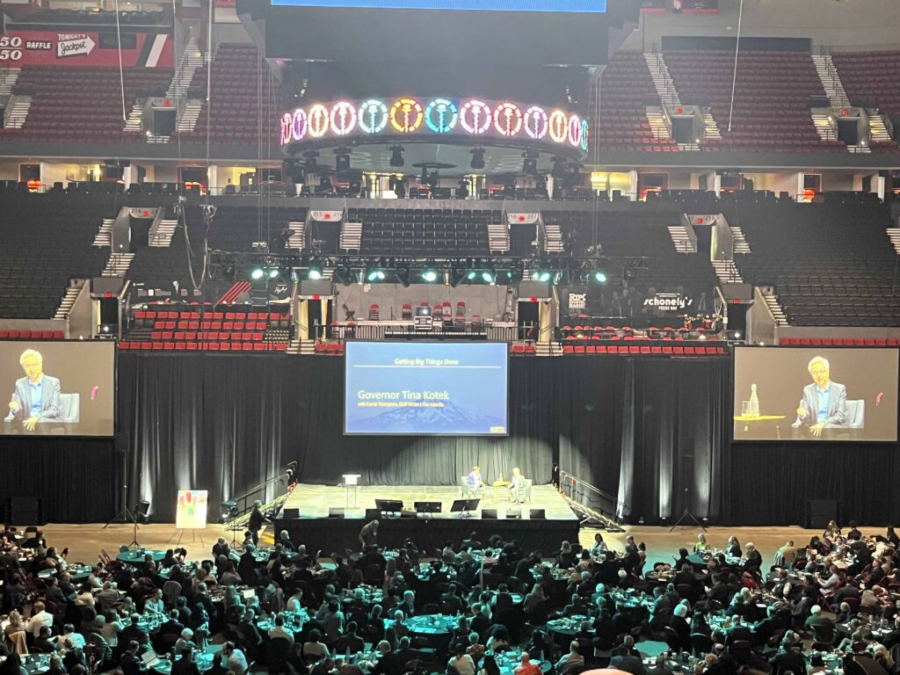PORTLAND – Gov. Tina Kotek and members of her Portland Central City Task Force say the city needs more police officers on the ground, tax breaks for businesses and a ban on public drug use.
Kotek and members of the task force, which has met privately since August, presented their recommendations at Monday’s annual Oregon Leadership Summit, an annual gathering of business leaders and public officials at the Moda Center.
Recommendations to revitalize the state’s struggling largest city range from the immediate – picking up trash – to the long-term: building 20,000 homes in downtown Portland by 2035. They’re an attempt to address downtown Portland’s myriad issues, including homelessness and public drug use, that have created difficult conditions for businesses and residents and caused the city’s national image to plummet.
“Sometimes turning on the TV, looking at billboards around the city or checking out new stories is like reading an obituary of Portland written by people who never truly knew it at its best,” Kotek said. “The truth is, Portland was never Portlandia.”



